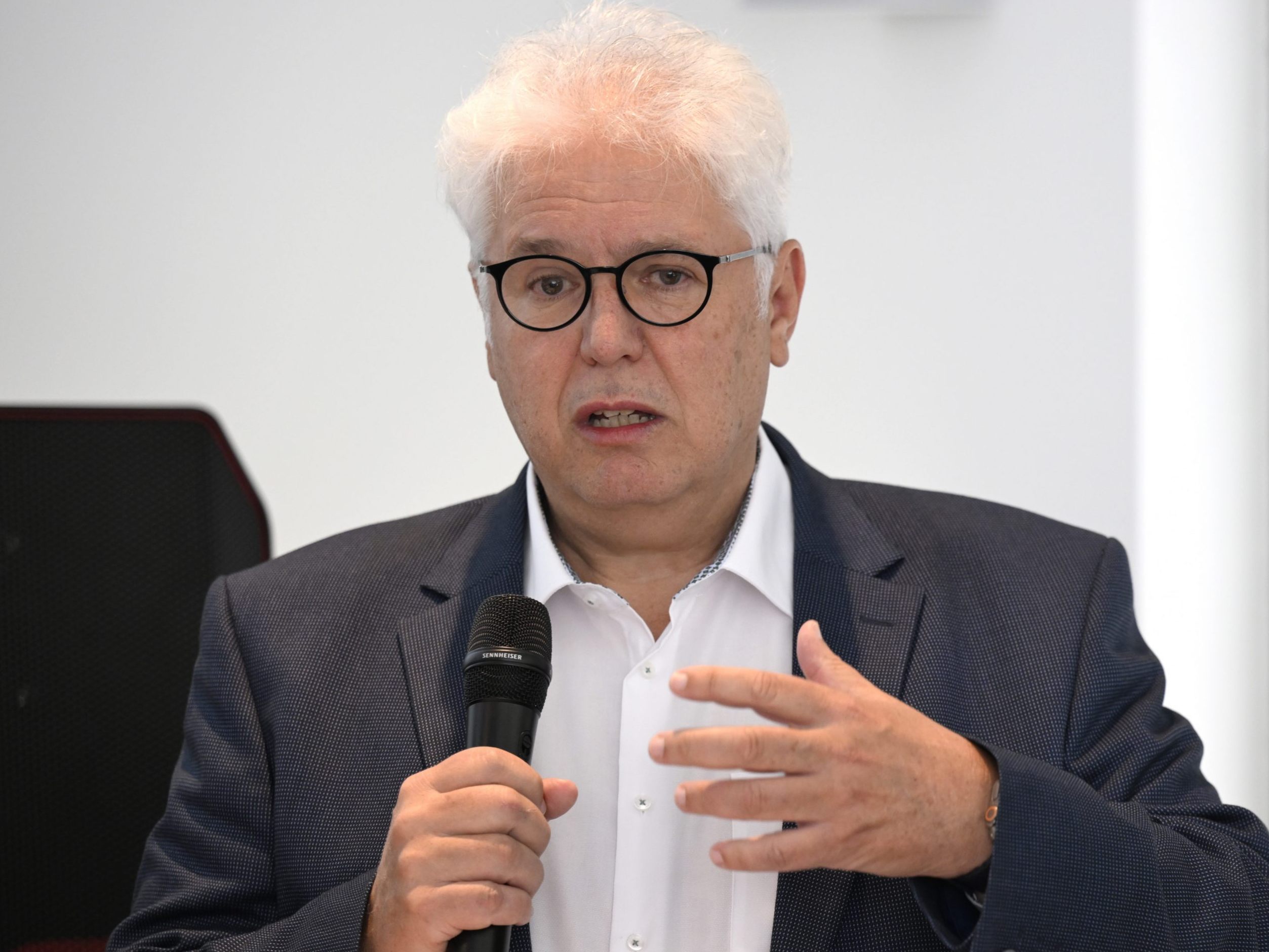Cash Register Reform: ÖGK Chairman Huss Welcomes Mattle's Insight

The chairman of the Austrian Health Insurance Fund (ÖGK), Andreas Huss, praised Mattle's "insight" on Monday. In other states, the criticism was mainly shared by SPÖ representatives. The federal ÖVP and the Greens, on the other hand, warned against a return to old structures.
Huss has been the ÖGK chairman again since July, representing the employees' side on a rotating basis. "It's good that ÖVP Governor Mattle addressed so clearly in the ORF press hour on Sunday that the ÖGK reform and the lack of regional presence of the ÖGK in the federal states were mistakes," Huss expressed his satisfaction. The representatives of employees would find even more mistakes in the "failed" reform, he let it be known.
ÖGK Must Become More Regional Again
Above all, the insured can no longer decide on their contributions themselves but are "controlled" by the representatives of the employers. "This was the second goal of the cash register merger, alongside the intended privatization of health care." If a real reform of the failed cash register merger is now being considered "sensibly," three goals must be prioritized, Huss stated.
The ÖGK must, for example, regain the financial resources that were taken from it due to the cash register merger. In addition, the influence of employers, private hospitals, or private insurance companies must be reduced again. The ÖGK must also become more regional again.
ÖVP Against "Return" to Old Structure
A return to the old structure would not be effective, stated the General Secretary of the People's Party, Nico Marchetti. He referred to the recent resolutions at the Governors' Conference. "We have set ourselves the goal of reducing waiting times for people for treatments, doctor appointments, or operations." For this, better patient management, more telemedicine, and measures to address the shortage of skilled workers are needed.
"The return to 21 funds seems ineffective to us in terms of the necessary reduction of bureaucracy and the importance of lean structures," said Marchetti. The Greens also expressed skepticism. Their health spokesperson Ralph Schallmeiner agrees with Mattle, according to his own statements, when it comes to the "turquoise-blue marketing gimmick" of the patient billion, but a renaissance of federalism would be bad news for the insured in the country, he was convinced.
Kaiser Sees "Shambles"
Carinthia's Governor Peter Kaiser (SPÖ), in turn, explicitly welcomes his Tyrolean colleague's initiative as a "necessary and correct step" upon APA request. The reform announced by the former ÖVP-FPÖ government turned out to be a bubble that burst. Instead of the announced "patient billion," taxpayers would have to dig even deeper into their pockets for the "self-marketing trick" in the end. Now others have to clean up the "shambles."
"Now it's about correcting the mistakes of the past. The goal must be that the services of our healthcare system are efficient, affordable, and above all, reach where they are needed - with the people. Patients deserve care at the highest level, regardless of place of residence, income, or insurance status," said Kaiser in a written statement.
Hacker Against "Back to the Start"
Vienna's City Councillor for Health, Peter Hacker (SPÖ), also reminded in a statement sent to the APA that the provincial governors, at their last meeting with the federal government leaders, decided to fundamentally discuss the organization of the healthcare system as one of several central fields. "This will be an important topic in the coming months, and we will need new approaches."
"I have always said that this reform did not bring any improvement," emphasized Hacker: "It was an expensive marketing gimmick at the expense of Austrians. However, going back to the start would be the next mistake. We need to address current developments and see how we can solve the numerous future issues in healthcare. Therefore, this late insight by the ÖVP is to be positively evaluated."
Styria Identifies Proliferation of Responsibilities
Styria's Regional Health Councillor Karlheinz Kornhäusl (ÖVP) emphasized on Monday in response to an APA inquiry: "The diverse challenges in the healthcare sector are known, and that reforms are needed should be undisputed." No matter where someone lives, the care should not make a difference. Currently, there is a proliferation of responsibilities and financial flows, and still no nationwide, uniform fee schedule for general practitioners.
Therefore, the necessary reforms require not a patchwork, but a comprehensive master plan for the healthcare of the people, Kornhäusl is convinced. This master plan should be developed through a broadly based discussion process involving all partners in the healthcare system and aim for the dimension of the Austria Convention as well as rapid implementation. Without taboos, professional arrogance, or blinkers, there must be open discussions about responsibilities, structures, and financing.
Edtstadler Also Hopes for Reform Partnership
For Salzburg's Governor Karoline Edtstadler (ÖVP), it is "more sensible to shape the future than to look into the past." She refers to the agreed reform partnership: "Here, the federal government and the states will focus on health alongside education, energy, and administration. It is important to me that the money follows the service. The care of patients who are treated in Salzburg hospitals from other federal states must be adequately compensated," said Edtstadler.
(APA/Red)
This article has been automatically translated, read the original article here.





